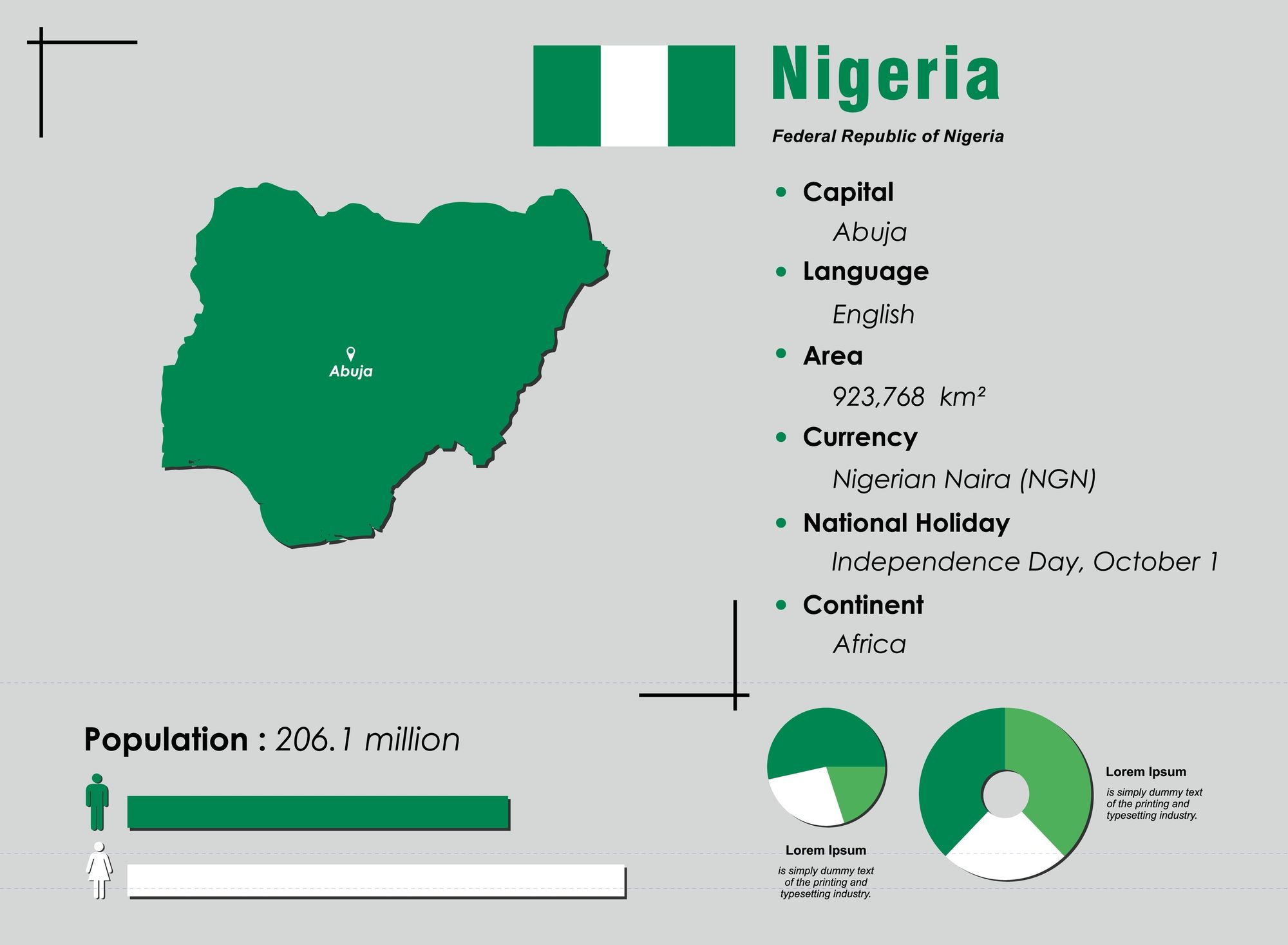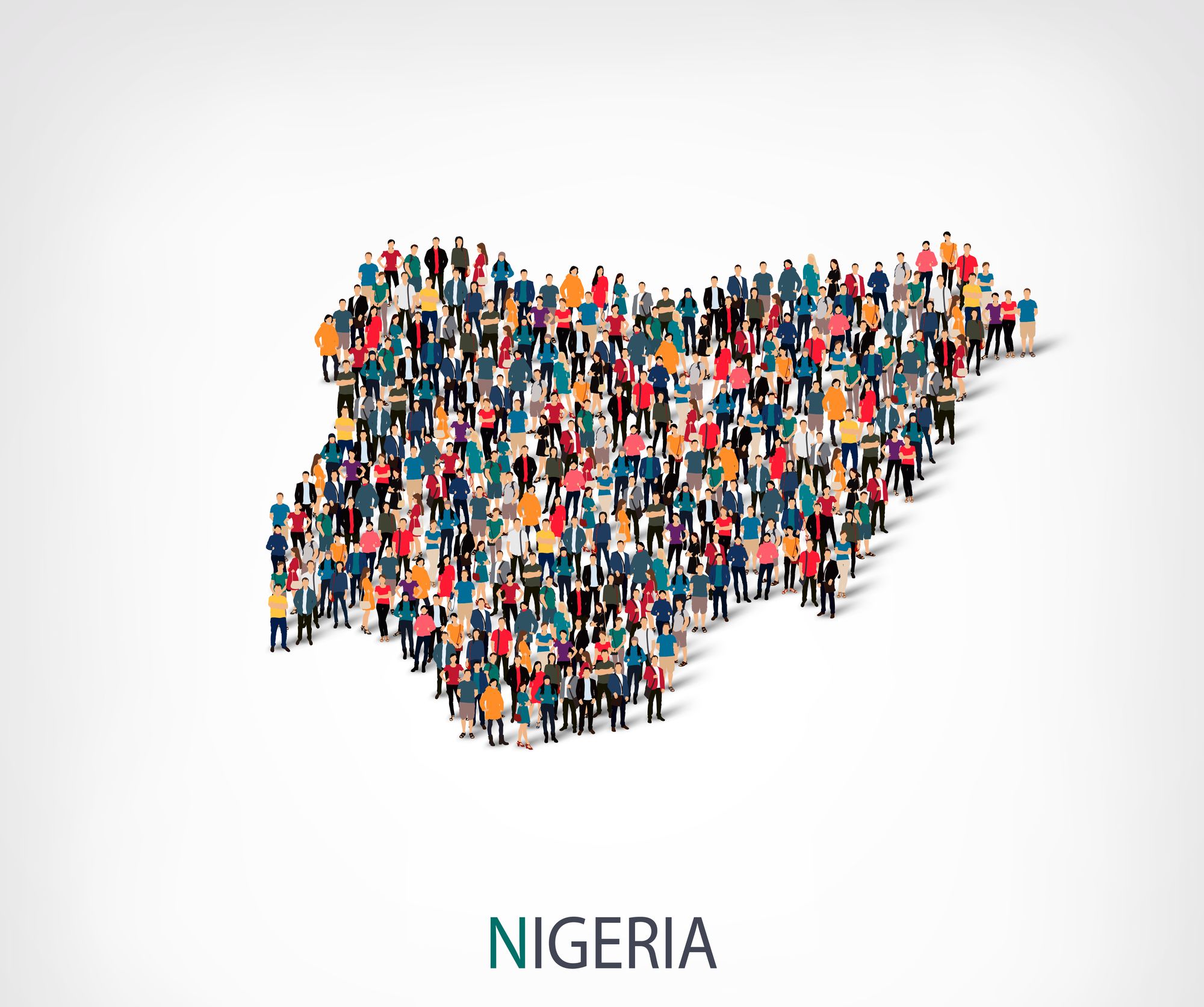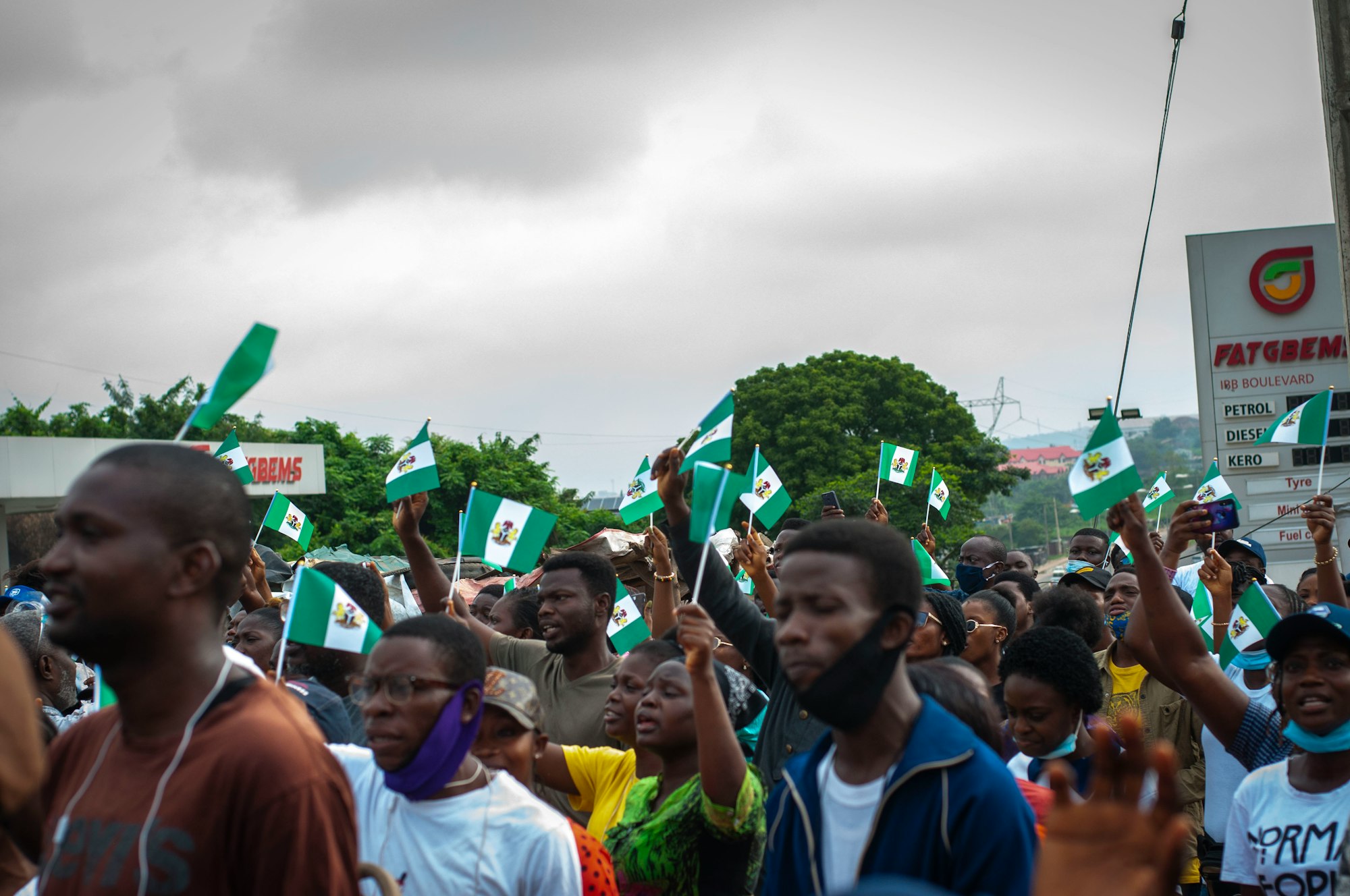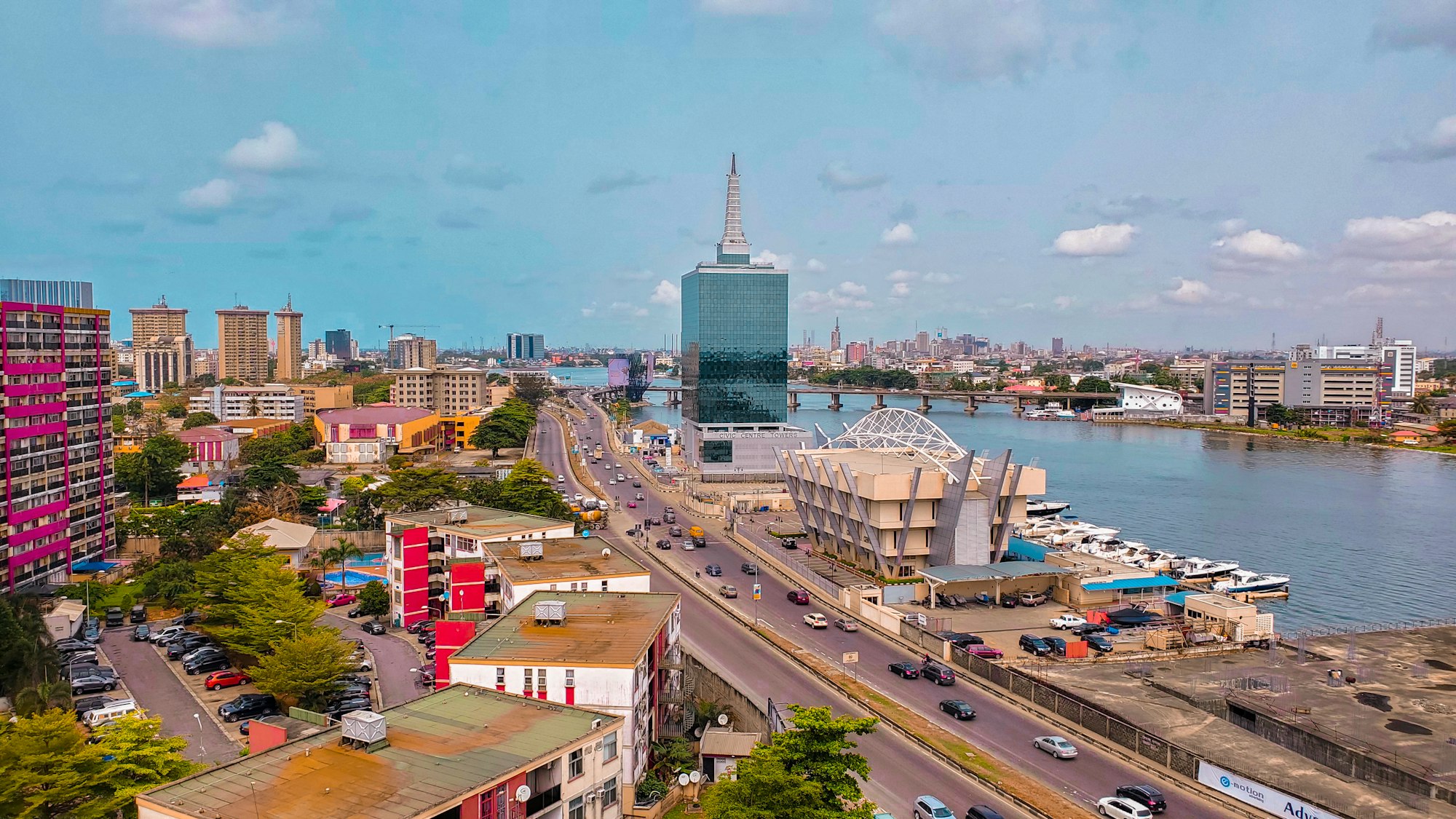Have you heard of the country Nigeria? If you haven’t, don't worry, this article will help. Nigeria is a country in the western part of Africa. For years, it has been nicknamed ‘The Giant of Africa’ because of the size of its population and economy. Nigeria has 36 states with diverse ethnic groups and languages, and covers an area of over 900,000 square kilometers. You can have a lot of fun visiting Nigeria–it’s an interesting place and you can learn a whole lot. Below are 5 things you didn’t know about Nigeria.

1. It has the largest populations in Africa!
Nigeria is the most populated country in Africa and also the largest black-majority country in the world. It’s home to over 200 million inhabitants (the sixth most populous in the world!) and also has one of the largest youth population in the world (with a median age of 18.1). It has seen a population growth of about 2.41% from 2021-2022. Nigeria is also one of the most densely populated countries in the world. The majority of the Nigerian population are either followers of Islam or Christianity with 50% and 40% of the total population respectively.

2. It has over 500+ languages
Nigeria is one of the most diverse countries linguistically in the world due to the number of indigenous languages spoken on a daily basis. Estimations made by experts claim that over 500 different languages are spoken in Nigeria. Some of the largest languages by speaker base are Igbo, Yoruba, Hausa, Pidgin English, Kanuri, Tiv, Nupe, Ijaw, and Burna. However, English serves as the official language in the country because of our history with British colonial rule. It is mostly spoken in urban areas and less commonly in rural areas or areas with less formal education. English is used in the educational sphere and by the government. Though it is spoken a lot, it’s not frequently used as a first language in the country. 1% of the population in the northeast region speak English fluently, and about 60 million Nigerians use it as a second language. There are a lot of polyglots in Nigeria!

3. It has over 250 ethnic groups
Like above, there are more than 500 languages spoken in Nigeria, so it's no surprise that there are over 250 ethnic groups in the country. Nigeria is a multinational country with the main ethnic groups being the Igbo, Yoruba and Hausa. Each ethnic group has a distinct culture, unique arts, an array of cuisines, fashion styles and festivals across the different tribes. Some of the festivals celebrated by these groups are the New Yam Festival by the Igbo people, the Yoruban Eyo festival, the Gani festival by the Hausa people, the Akala fishing festival by the Tiv people, and the Calabar carnival by the Efik people, one of the biggest festivals in Africa and the biggest carnival in Nigeria.
4. Though Lagos is our largest city, it is not the capital
The federal capital of Nigeria is Abuja. Built in the 1980s, it was built to replace Lagos as the capital. Its population is over 3 million people. It is where the Presidential Villa known as 'Aso Rock', home to the President, is located. Lagos, on the other hand, is the most populous city in Africa and one of the primary economic hubs for the continent. The city has been described as a financial, cultural and entertainment capital of Africa. It also has significant influence on commerce, education, technology, politics, fashion and art. Despite all these, Lagos is still not the state capital.
5. The richest man in Africa is a Nigerian!
The richest man in Africa is a Nigerian businessman named Aliko Dangote. His net worth is estimated to around $13 billion. He’s also the richest black man in the world–fascinating right? He started off by trading imported agricultural products locally before turning his business into a multi-billion dollar corporation. Currently, he’s one of Africa’s leading industrialists and philanthropists.
Bonus Point! Afrobeat culture is on the rise!
Afrobeat is an African music genre. Historically, it is said to originated in Ghana in the 1920s and popularized by the legendary Fela Anikulapo Kuti in the 1960s among Nigerians. The evolution of Afrobeat over the years has been nothing short of exceptional. There have been a good number of African artists, predominantly Nigerians, that have had a significant impact in pushing the genre into the global scene. Major performers that you might be familiar with are Davido, Wizkid and Burna Boy. Some of the biggest songs by Nigerians that have brought more recognition to the genre are "If" and "Fall" by Davido from 2017, "Ye" (2018) and "Last Last" (2022) by Burna Boy, "Essence" (2020) by Wizkid ft Tems, and "Love Nwantiti" by CKay (2019), and many more. Trust me–these are all beautiful songs, so don’t say I didn’t put you on! Afrobeat and Nigerian music as a whole is increasingly one of the biggest cultural exports of Nigeria today.

